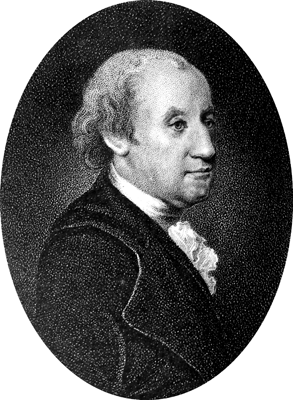 |
 |
|||
|
|
Henry James Pye was eldest son of Henry Pye
of Faringdon House
in Berkshire. His mother was Mary, daughter of David James, Rector of
Woughton in Buckinghamshire. She died on 13th May 1806, aged 88. The father, who was
MP for Berkshire from 1746 till his death, was great-grandson of Sir
Robert Pye. Henry, born in London on
10th February 1745, was educated at home until 1762, when he entered Magdalen College, Oxford, as a gentleman-commoner. He was created
MA on 3rd July 1766, and DCL at the installation of Lord North as
Chancellor in 1772. On the death of his father, on 2nd March 1766, Pye inherited
his estates at Faringdon and debts to the amount of
£50,000. His resources long suffered through his efforts to pay off this large sum. His house at Faringdon, too, was burned down soon after his succession to it, and the expenses of rebuilding increased his embarrassments. He married at the age of
twenty-one and, at first, devoted himself to the pursuits of a country gentleman. He joined the Berkshire
Militia and was an active county magistrate. In 1784, he was elected MP for Berkshire. Soon afterwards, his financial difficulties compelled him to sell his ancestral estate, and he retired from
Parliament at the dissolution of 1790. In 1792, he was appointed a police magistrate for Westminster. One of his most useful publications was a ‘Summary of the Duties of a Justice of the Peace out of
Sessions’ (1808). On 25th January 1800, ‘Adelaide,’ a second tragedy by Pye, based on episodes in Lyttelton's ‘Henry II,’ was performed at Drury Lane, with John Kemble as Prince Richard and his sister, Sarah Siddons, as the heroine. The great actor and actress never appeared, wrote Genest, to less advantage. On 29th October 1805, an inanimate comedy, ‘A Prior Claim,’ in which his son-in-law, Samuel James Arnold, co-operated, was also produced at Drury Lane. In 1807, Pye published ‘Comments on the Commentators of Shakespeare, with Preliminary Observations on his Genius and Writings,’ which he dedicated to his friend, Penn. ‘The Inquisitor,’ a tragedy in five acts, altered from the German (‘Diego und Leonor’) by Pye and James Petit Andrews, was published in 1798, but was never performed, because its production on the stage was anticipated by that of Holcroft's adaptation of the same German play under the same English title at the Haymarket on 25th June 1798. Besides the works enumerated, Pye issued a respectable translation of Bürger's ‘Lenore’ (1795, and two works of fiction, "interspersed with anecdotes of well-known characters," respectively entitled ‘The Democrat’ (1795) and ‘The Aristocrat’ (1799). He revised Francis' ‘Odes of Horace’ in 1812 and a copy of Sir James Bland Burges' ‘Richard I,’ with manuscript notes and emendations by Pye, is in the British Library. In May 1813, an edition of Pye's select writings in six volumes was announced, but happily nothing more was heard of it. He died at Pinner on 11th August 1813. Pye was twice married. His first wife, Mary, daughter of Colonel William Hook, wrote a farce, ‘The Capricious Lady,’ which was acted at Drury Lane on 10th May 1771 for the benefit of Mr. Inchbald and Mrs. Morland. It was not printed. By her, who died in 1796, Pye had two daughters,
Mary Elizabeth (d. 1834), wife of Captain Jones of the 35th Regiment; and Matilda Catherine, who married, in 1802, Samuel James Arnold, and died in 1851. Pye married, in November 1801, a second wife, Martha, daughter of W. Corbett, by whom he had a son, Henry John (1802–1884), and a daughter, Jane Anne, wife of Francis Willington of
Tamworth in Staffordshire. The son succeeded in 1833, under the will of a distant cousin, to the estate of Clifton
Hall in Staffordshire, where the family is still settled.
|
|||
| © Nash Ford Publishing 2013. All Rights Reserved. | ||||



 Sir Henry James Pye (1745-1813)
Sir Henry James Pye (1745-1813)